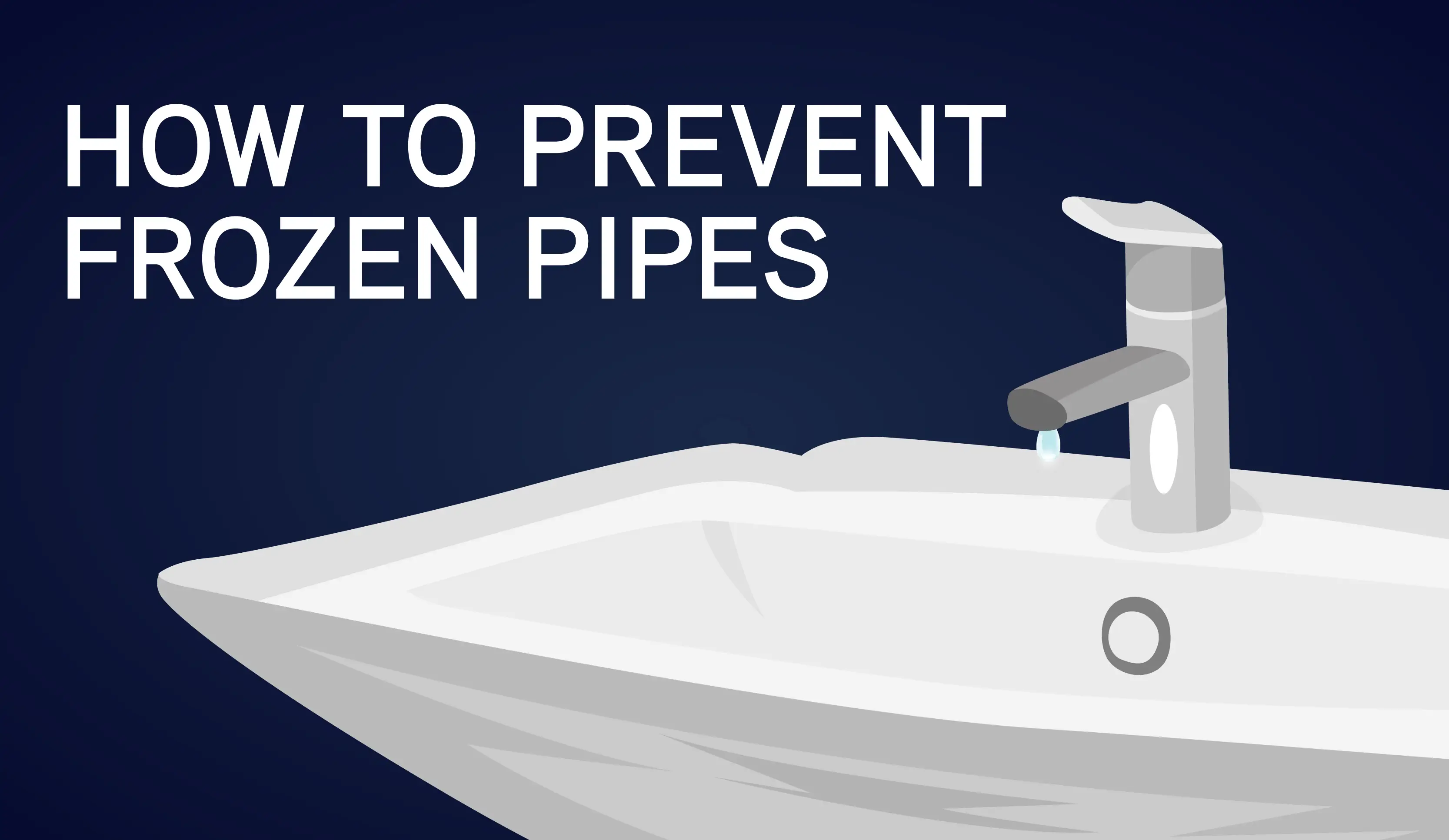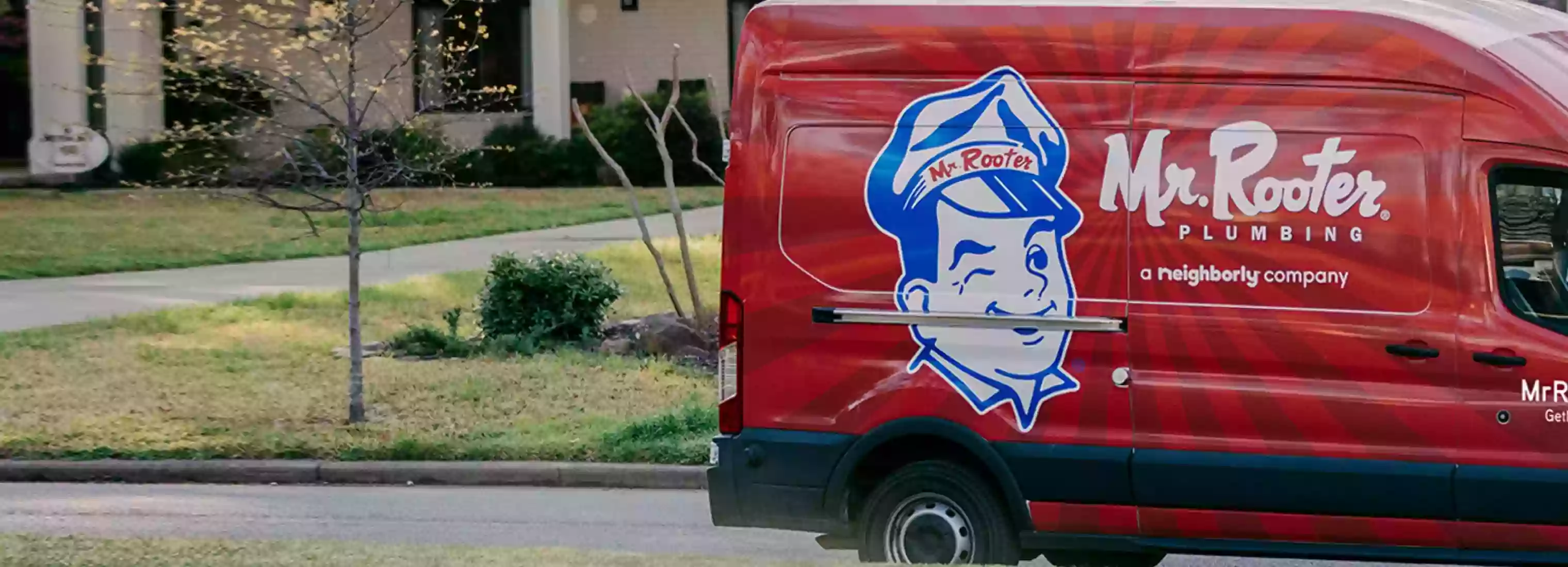How to Prevent Frozen Pipes

Frozen pipes are incredibly easy to overlook. While they might seem like a minor inconvenience, they can cause significant damage to your home and its plumbing system.
As is often the case, preventing frozen pipes is better than repairing burst pipes caused by a freeze. We’ll provide a few basic tips to help you prevent frozen pipes and shed some light on larger home upgrades to keep your pipes warm in colder months.
Basic Tips to Prevent Frozen Pipes
Preventing frozen pipes doesn’t always require a home renovation. If you live in an area where freezes are relatively infrequent, chances are you can usually prevent frozen pipes with a few simple strategies:
- Leave your taps dripping: You’ve likely heard the idiom “A rolling stone gathers no moss.” A similar thing is true when it comes to running water and freezing. If you leave your taps dripping when the temperatures drop below freezing, the water won’t stay still in your pipes, preventing the likelihood of a freeze.
- Run the heater: Hopefully, you’re already running the heater when it drops below freezing, but if you aren’t, you should. Increasing the temperature in your home can reduce the chance of a pipe freeze.
- Increase airflow to your pipes: When temperatures plummet, it’s time to open up those cabinets and cupboards. Whenever possible, increase the airflow to your pipes. This allows warm air to regulate pipe temperatures and keep them from freezing. This strategy also works wonders for thawing frozen pipes.
Home and Plumbing Upgrades to Prevent Frozen Pipes
Those living in regions with harsh winters may need more than an open cabinet and a dripping tap to keep frozen pipes at bay. Thankfully, you can make home and plumbing upgrades to prevent frozen pipes from ruining your winter. Here are a few we recommend:
- Add pipe insulation: Pipe insulation can help regulate your pipes’ temperature in colder months, making it virtually impossible for them to freeze. Pipe insulation does more than prevent frozen pipes; it also improves the efficiency of your hot water heater and saves energy.
- Air sealing: Air sealing is a form of insulation that wraps around pipes. It’s easier to install than other forms of insulation and helps stabilize pipe temperatures.
- Insulate your home: Better insulation in your home means better insulation for your pipes. While it’s not as powerful at preventing frozen pipes as pipe-specific insulation methods, it can keep your pipes freeze-free most months.
Frozen Pipe Prevention FAQs
How do I stop my pipes from freezing?
The best way to stop your pipes from freezing is to have a plumber professionally install pipe insulation. This will prevent pipe freezes at almost any temperature.
You can also increase the airflow to your pipes by opening up cabinets and doors while the heat is running. This helps expose the pipe to warm air and increases its temperature.
Finally, always leave your taps dripping when the temperatures fall below freezing. Moving water is less likely to freeze, as it does not stay in contact with the cold pipe for as long.
Will frozen pipes thaw on their own?
Yes, frozen pipes will eventually thaw on their own, but you should hire someone to help you thaw them. If left frozen, pipes are more likely to burst and cause significant water damage to your home.
To thaw a frozen pipe, you can employ some of the same strategies you would when attempting to prevent a freeze. Most notably, you can use heaters and airflow improvements to unfreeze specific areas within a pipe.
The best way to thaw a frozen pipe is to hire a professional plumber. They can thaw the pipe quickly and prevent the damage from worsening.
Prevent Frozen Pipes with Help from Mr. Rooter
Frozen pipes are no small issue. Left alone, they can quickly cause major damage and burst pipes throughout your home. Don’t be unprepared when winter comes knocking at your door. Contact Mr. Rooter® for help with pipe insulation or if you need frozen pipe repair.
 Click to call
Click to call


